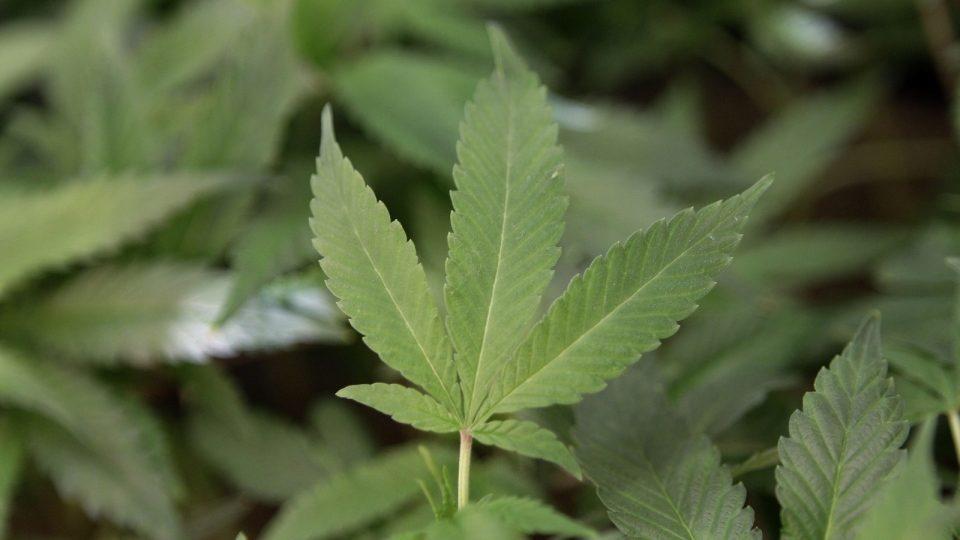The Illinois legislature joined the movement to decriminalize the possession of small amounts of pot, passing a measure Thursday that would bar arrest for the offense.
~
Carrying small amounts of marijuana would result in a fine instead of an arrest under a measure approved Thursday by the Illinois Senate.
Low-level cannabis possession would go from a crime with fines up to $2,500 and up to a year in a jail to penalties likened to a traffic ticket: no court time and a fine of up to $125 for those caught with 15 grams or less, which is the equivalent of about 25 cigarette-size joints.
The Senate voted 37-19 to approve the legislation after it cleared the House last month. But it's not going to Republican Gov. Bruce Rauner's desk just yet — sponsors say they'll hold onto it until additional cleanup language is approved.
If signed into law, Illinois would join 17 other states in decriminalizing the possession of small amounts of marijuana, according to NORML, which advocates the legal use of marijuana. Nearly half the country, including Illinois, already allows for the use of medical marijuana.
Sponsoring Sen. Michael Noland, D-Elgin, said that while he believes using marijuana is wrong, people shouldn't have their lives ruined because of it.
"It's wrong, and I would encourage the children of this state and my own children to abstain from the use of the substance, but people do use this, and it should not be something that ruins social lives and professional lives as well," said Noland, who is mulling a bid for the 8th Congressional District seat now held by U.S. Rep. Tammy Duckworth of Hoffman Estates. "People have been arrested at very young ages for this and have suffered the consequences."
Supporters said the measure would keep low-level drug offenders out of the state's clogged jails and prisons. Earlier this year, Rauner announced a goal of reducing the state's prison population by 25 percent over the next 10 years. On Thursday, Rauner spokeswoman Catherine Kelly offered the administration's standard response when asked about pending legislation: "The governor will carefully consider any legislation that crosses his desk."
Another sponsor of the measure, Rep. Kelly Cassidy, D-Chicago, said she doubted that decriminalization would lead soon to the legalization of marijuana in Illinois. But she said the trend is in that direction.
"I think a poll would find more ... support for legalization among the public than politicians, but that's simply not politically feasible in the General Assembly now," she said. "I do think that's the direction we're going. When we get there is anyone's guess."
Opponents of decriminalization said the measure doesn't include treatment requirements or a limit on the number of tickets someone can receive.
"To have no cap on the number of times you can come through here, maybe you can use some drug treatment," said Sen. Chapin Rose, R-Mahomet.
Republican Sen. Jason Barickman of Champaign voted for the measure, saying it would help ease the state's financial woes by reducing court costs.
"Every person you talk to in this state wants us to find ways to save money," Barickman said. "This legislation gives us a way to do that. It will save some money at the state level, and give us the opportunity to save money at the local level."
During consideration in the House last month, Cassidy said the measure wouldn't override laws in cities like Chicago that already have fines in place for marijuana possession but is aimed at creating a uniform penalty throughout the state and eliminating the option for police to arrest people carrying small amounts of pot.
The bill won approval weeks after Cook County State's Attorney Anita Alvarez announced her office would stop prosecuting low-level marijuana possession cases for people with fewer than three arrests or citations. It also follows a measure enacted by Chicago in 2012 that allowed police to issue tickets of $250 to $500 for someone caught with 15 grams or less of marijuana.
Cassidy credited the measure's passage to a "remarkable coalition" of Democrats and Republicans, the Illinois State's Attorneys Association, Illinois Policy Institute and the American Civil Liberties Union.
"It's incredibly gratifying," she said. "This has been several years in the making, with a lot of negotiation and compromise. It shows that when all the stakeholders hear each other, you can come up with a good solution."
One little-reported provision of the measure would change the state's zero-tolerance law for driving with marijuana in one's system.
Marijuana remains in the body much longer than alcohol, after the effects of pot's psychoactive component, THC, have worn off. So instead of drivers being deemed intoxicated with any amount of pot in their systems, the new limit, if the bill becomes law, would be 15 nanograms of THC per milliliter of blood, or 25 nanograms per milliliter of saliva.
Cassidy said the standard is based on federal studies that looked at when impairment occurs.
Police would still be able to use field sobriety tests to establish impairment regardless of blood levels, just as with alcohol.
If Rauner signs the bill, it would take effect Jan. 1.
~





